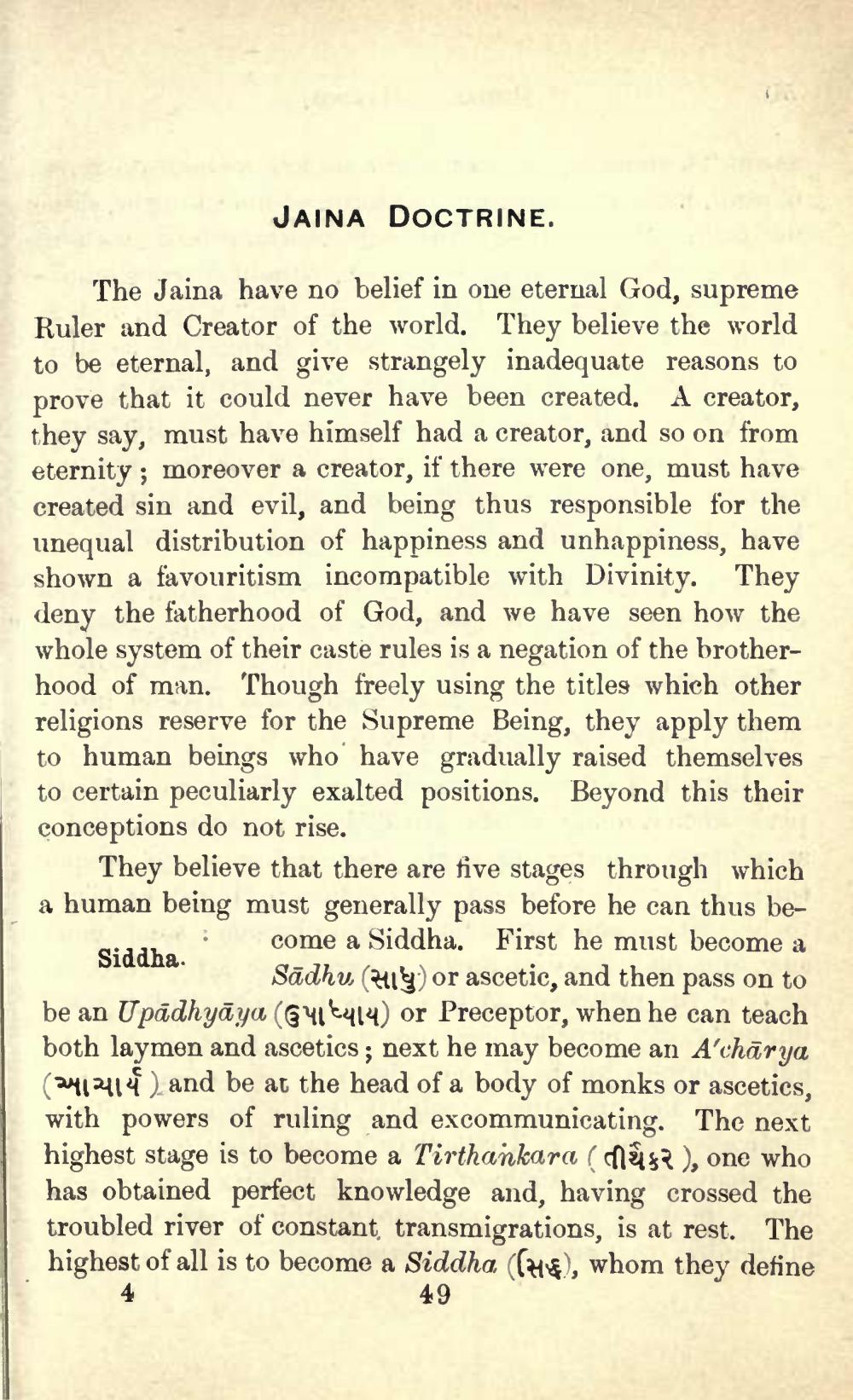________________
JAINA DOCTRINE.
The Jaina have no belief in one eternal God, supreme Ruler and Creator of the world. They believe the world to be eternal, and give strangely inadequate reasons to prove that it could never have been created. A creator, they say, must have himself had a creator, and so on from eternity; moreover a creator, if there were one, must have created sin and evil, and being thus responsible for the unequal distribution of happiness and unhappiness, have shown a favouritism incompatible with Divinity. They deny the fatherhood of God, and we have seen how the whole system of their caste rules is a negation of the brotherhood of man. Though freely using the titles which other religions reserve for the Supreme Being, they apply them to human beings who have gradually raised themselves to certain peculiarly exalted positions. Beyond this their conceptions do not rise.
They believe that there are five stages through which a human being must generally pass before he can thus be
come a Siddha. First he must become a Siddha.
to sādhu (HI) or ascetic, and then pass on to be an Upadhyāya (641€414) or Preceptor, when he can teach both laymen and ascetics; next he may become an A'chārya (241 211 4 ) and be at the head of a body of monks or ascetics, with powers of ruling and excommunicating. The next highest stage is to become a Tirthankara ( Müsa), one who has obtained perfect knowledge and, having crossed the troubled river of constant transmigrations, is at rest. The highest of all is to become a Siddha ((HF), whom they define
49




